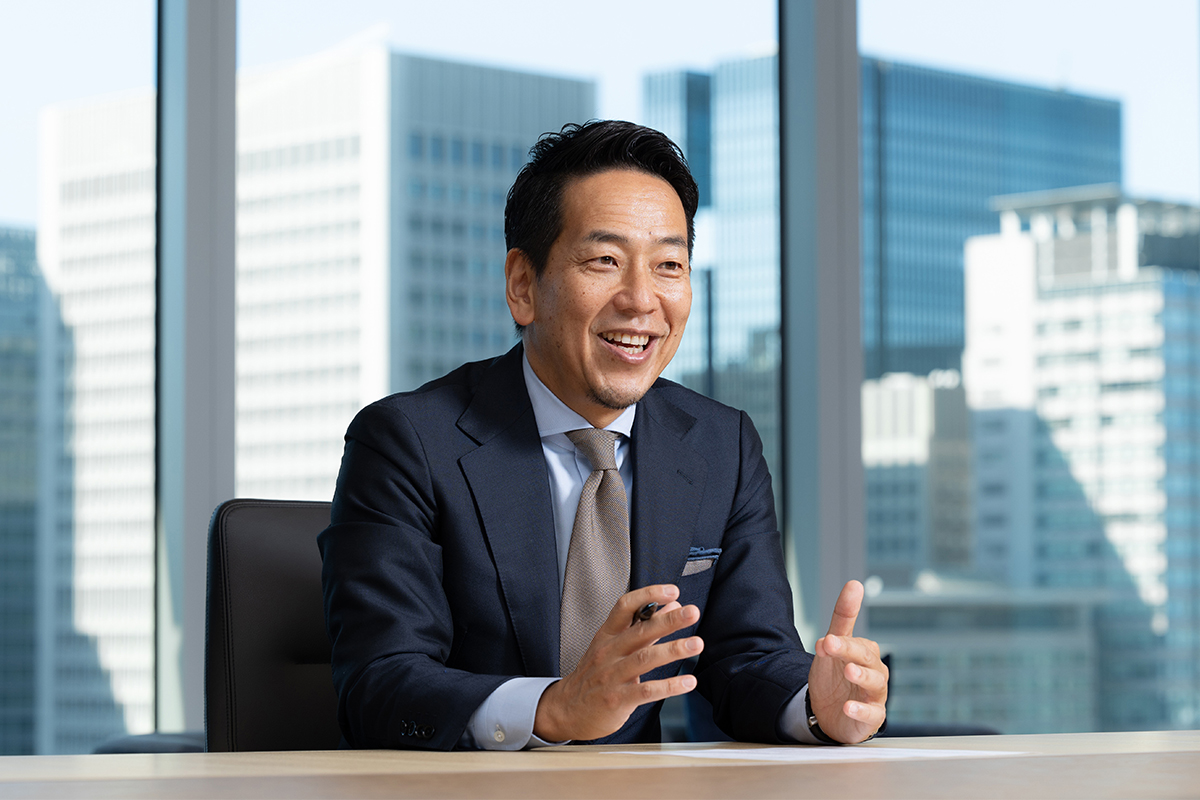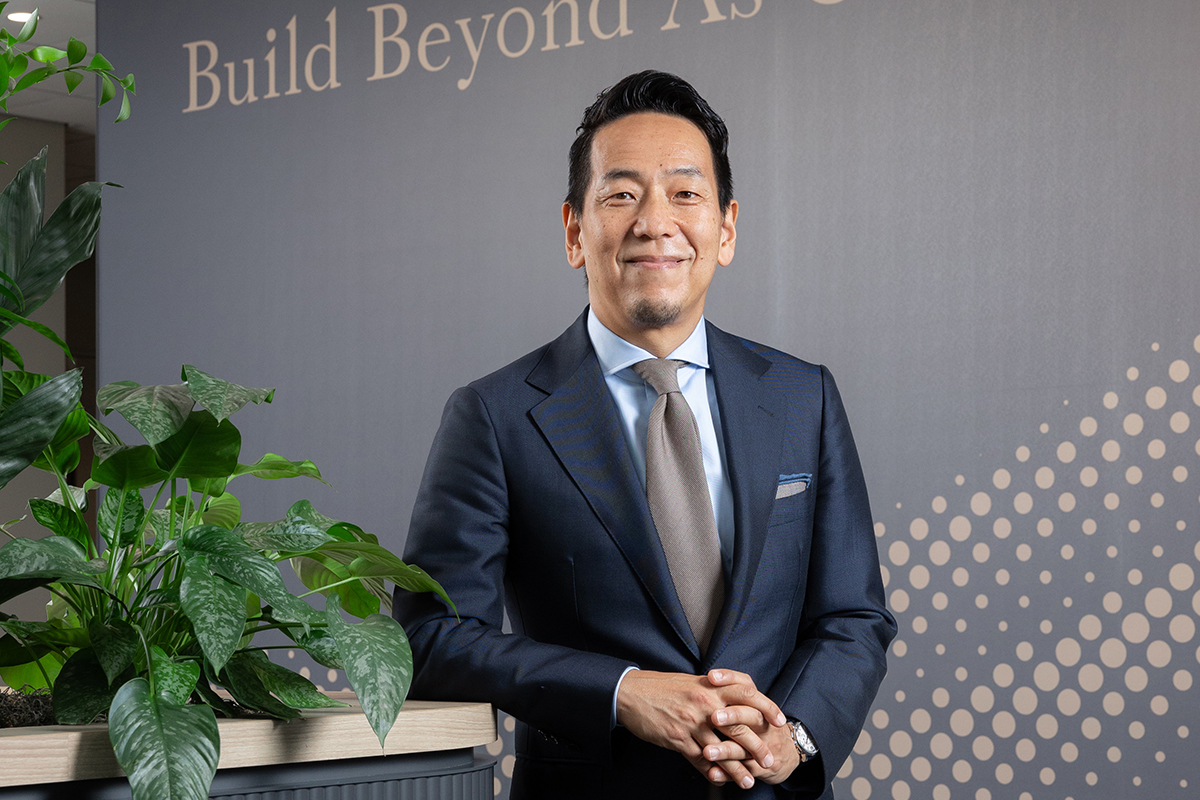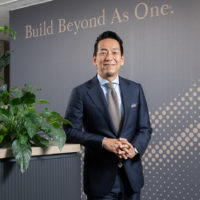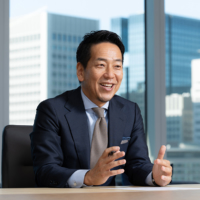ABeam Consulting, based in Tokyo with 28 offices worldwide, clearly defines how it wants to help its clients grow by being a real partner.
“The first focus is the success of Japanese and other Asian enterprises in their domestic markets. The second is their growth in the global market, and the third is successful entries of non-Asian enterprises into the Asian market,” President and CEO Takahiro Yamada said in a recent interview with The Japan Times. “We aim to be the first choice in Asia by maximizing our strength of being able to provide services that fit the Asian market’s values, commercial practices, structure, characteristics and diversity of human resources.”
One example of ABeam Consulting’s ongoing projects is its management of human capital for a global trading company, leveraging its expertise in management, marketing, logistics, financing, risk management and digital transformation.
The project involves more than just a database on the company’s employees in Asia for evaluation purposes. Its goal is to use the database to determine how to train each person and identify who to assign to a particular role or project. “Through effective management of human capital, you can visualize human resource information and optimize staffing, making it possible for especially talented workers to take leadership roles across countries and regions,” Yamada said, stressing that using untapped abilities increases corporate value and leads to business growth.
ABeam Consulting also engages in projects that utilize various cutting-edge technologies to create innovations and improve operations by focusing on regional characteristics. “Our role as a consulting firm is to connect companies with technology startups and to create plans of how technologies can be used to maximize the client’s potential,” Yamada said. He explained that the uniqueness of the Asian region is that it has a large population, especially of youths who are trend-conscious and shop actively. “A lot of technology startups are emerging in Asian countries such as India, Singapore, Thailand, Vietnam and Indonesia that provide solutions to develop new customer experiences, taking advantage of the market characteristics,” he said.
In the field of social infrastructure, ABeam Consulting has been engaging in projects in Southeast Asia, including the construction of a subway in Jakarta aimed at easing chronic traffic jams. “The project employed Japan’s subway system almost entirely — from facilities, train cars, ticket vending machines and ticket gates to the IC card system. Our assistance extended from improving the user interface for better convenience to ensuring that the operation is sustainable and profitable by establishing an operating company and its structure,” he said.

In Thailand, ABeam Consulting is involved in a project to introduce electric vehicles to public services and the transport sector, starting with the postal service. Similar examples of yen-loan-financed projects that the company has been part of can be found in countries such as Myanmar, Cambodia, Laos, Vietnam and the Philippines. In all of these projects, the company has been especially conscious of taking approaches that are well-accepted by the communities and self-sustaining in the long run.
To keep pace with the changing needs of companies and industries and provide optimum consulting and support, ABeam Consulting gleans insights on companies’ interests and priorities from what they have committed to do in their corporate purposes and visions.
“Firstly, many companies speak of ‘future creation,’ which involves identifying their existing values and enhancing them to match the direction of social change. This is especially apparent in the fields of health care, energy and urban planning. The second point is what and how to transform, in order to create the future that they envision. And the major subject of transformation is the value chain, which consists of the engineering chain, the supply chain and the demand chain,” Yamada said. He pointed out that the manufacturing sector is faced with the need to accelerate various kinds of transformation, from implementing new technologies to promote smart factories and improving operational efficiency to enhancing digital marketing and creating new customer experiences.
The third point, he said, is sustainability, which involves the disclosure of nonfinancial information related to current greenhouse gas emissions plus plans and progress on reducing them, as well as data representing diversity among workers, such as the ratio of women in leadership positions and the proportion of multinational employees. “Many companies are seeking to find out how these things will impact their corporate values, and what more they can do to accelerate their sustainability efforts and connect them to growth and profit,” he said. “But for companies that are serving the Western European market, sustainability is already the top agenda that can make or break their businesses, depending on how they deal with it.”
The fourth point is innovations based on digital technologies. “There is a wide range of new technologies, from those that contribute to the improved efficiency of management and operations, to the metaverse, which can create new business models and customer experiences of moving freely between the real and virtual worlds. Metaverse technology can also be used for the transfer of skills and technologies,” Yamada said. Exploring new technologies and technological collaborations across industries can reinforce the effects of companies’ efforts to address their issues from diverse aspects, which is also where the power of consulting comes into play.
These agendas are intertwined with each other. The issue of carbon emissions should be addressed collectively across value chains rather than by each company individually. Environmental, social and governance data allows companies to demonstrate how nonfinancial information will impact their future value. This is connected to impact-weighted accounting, which calculates and reflects a company’s financial, social and environmental performances. ABeam Consulting offers a Digital ESG Platform that collects ESG-related information from inside and outside of a company and analyzes the accumulated data, which enables a quantitative understanding of ESG factors. This is expected to contribute to the utilization of ESG factors in maximizing corporate values and further acceleration of ESG pursuits.
At the same time, as ABeam Consulting provides comprehensive support to companies in all industries on these top-priority agendas, it also makes its own sustainability efforts. It is a member of the Task Force on Climate-related Financial Disclosures consortium, established in Japan in 2019 with the aim of promoting the disclosure of climate-related information and its use by financial institutions under the framework of the international TCFD. It has signed the United Nations Global Compact, which helps businesses worldwide fulfill their corporate responsibilities from the perspective of sustainability. It is a member of the Global Compact Network Japan, which aims to realize the compact’s principles through contributing to national policymaking and participating in U.N. projects. ABeam Consulting also publishes an annual sustainability report.

“We are making these efforts not for the purpose of disclosure, because we are not a publicly listed company, but because we believe that maximizing our own sustainability will become a value of our own. We nurture our own human resources who can create innovations and harness technologies to digitalize our business. These efforts make it possible to create economic value while fulfilling our social responsibilities, leading to the sustainability of society and the universe. This is what we call our Value Creation Story,” Yamada said.
Under the brand slogan “Build Beyond as One,” ABeam Consulting is committed to developing human resources — both for itself and its clients — to build a collaborative ecosystem of diverse talents capable of leading transformations in various sectors and across society. “We are not just talking about the collaboration between ourselves and our clients, but a larger ecosystem where various stakeholders gather to create new values that benefit them all as well as society. To do that, we are taking both opportunities and risks together with our clients and tackling their challenges as our own, which is the attitude expressed in our slogan,” Yamada said.
Download the PDFs of this ASEAN-Japan 50th anniversary Special








